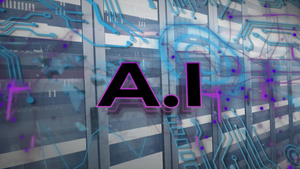China Thwarts Intel's $5.4B Deal for Tower SemiconductorChina Thwarts Intel's $5.4B Deal for Tower Semiconductor
Intel has abandoned its attempts to acquire the Israeli chipmaker after China reportedly failed to approve the deal.

This article originally appeared on Light Reading.
Intel didn't seem overly bothered by the collapse of its $5.4 billion deal for Tower Semiconductor, an Israeli chipmaker. The deal had required sign-off by the usual procession of global competition bigwigs, and China had reportedly kept writing hand in pocket as the deadline expired. Instead of fighting for some kind of extension or workaround, Intel is coughing up $353 million in compensation for Tower and walking away. "Our respect for Tower has only grown through this process, and we will continue to look for opportunities to work together in the future," said Intel CEO Pat Gelsinger in his prepared remarks.
Tower specializes in making analog chips for customers such as Intel and operates several factories (known as "fabs" in industry lingo), including a few in the earthquake zones of Israel, Japan and southern California. The takeover was supposed to help Intel establish itself as a foundry, producing chips on a contract basis for other chip designers. That strategy remains intact after the deal's collapse.
If this was a Chinese attempt to scupper US manufacturing ambitions, and retaliate against US punishment of Huawei and other Chinese tech firms, it looks like a fairly puny poke in the gut rather than a concussive blow to the head. Today's big geopolitical fight is over the miniscule, cutting-edge chips that power artificial intelligence and the most advanced computer systems. TSMC of Taiwan currently leads the field on the manufacturing side. Intel aims to catch up and overtake it in future. It's hard to fathom how Tower would have helped.
Its latest annual filing with the Securities and Exchange Commission is replete with discussion about CMOS (complementary metal-oxide semiconductor) and 65-nanometer to 1-micron processes. These measurements supposedly refer to the size of transistors used in chips. Smaller measurements allow more transistors to be crammed in, boosting performance. Widely used as they may be, Tower's chips cannot be described as industry-leading from a technical perspective. TSMC today cranks out chips based on 5-nanometer nodes.
Sales Boost
That said, Tower would have brought about $1.7 billion in annual revenues and $266 million in net profit. And it has been growing at a decent clip, with sales up 11% and net profit up 7% for its last fiscal year. In the two years to February 2022, when Intel made its offer, its share price soared 161%. Since then, however, it has dropped 28%. And in pre-market trading on the Nasdaq today, after news broke about the end of the deal with Intel, it was down 11.8%.
Intel, meanwhile, has not had the best recent run. Fierce cost cutting drove it to a net profit of nearly $1.5 billion for its most recent quarter, up from a net loss of $454 million a year earlier, but sales dropped 15.4%, to about $12.9 billion, because of weaker demand for its computing products, inventory adjustments by customers and competitive challenges. In recent years, AMD, a rival chipmaker, has taken share from Intel in the market for the central processing units installed in servers.
But the market reaction so far to the termination of the Tower takeover is no big worry. After falling 2.6% yesterday, Intel's share price was up 0.12% on the Nasdaq in pre-market trading. It has gained 30% since the start of the year in a sign of investor confidence in Gelsinger's plans. Sales at Intel Foundry Services, as the foundry bit is named, rocketed 307% for the second quarter, to $232 million.
Important agreements have been signed with Synopsys, whose electronic design automation software is critical in chipmaking, and Arm, whose blueprints are used by a host of chip designers that would naturally welcome more foundry competition to TSMC. On the telecom side, basestation equipment maker Ericsson recently struck an agreement to use Intel's 18A process, set to produce chips with 1.8-nanometer transistor measurements.
Taiwanese Trouble
In the meantime, Ericsson, Nokia and numerous other companies remain heavily reliant on TSMC. That scares European and US politicians who fear a Chinese invasion of Taiwan would cut off their economies from vital electronics. The desire for homegrown alternatives largely explains why the US government and European Union are flinging billions of dollars in subsidies at chipmakers. Yet there is equal concern the planet will end up with too many factories and a future glut.
TSMC is not about to cede technology or commercial leadership without a fight, either. It is working to bring 3-nanometer chips into the market and boasted sales of $15.7 billion and a net profit of $5.9 billion for its recent second quarter, deriving 53% of its chip revenues from 7-nanometer and more advanced processes.
But even TSMC is struggling, with second-quarter sales dropping 14% year-on-year. Wendell Huang, TSMC's CFO, blamed "global economic conditions, which dampened the end market demand, and led to customers' ongoing inventory adjustment." It will not make strategic diversification any easier for Intel.
Read more about:
Chip WatchAbout the Author
You May Also Like









